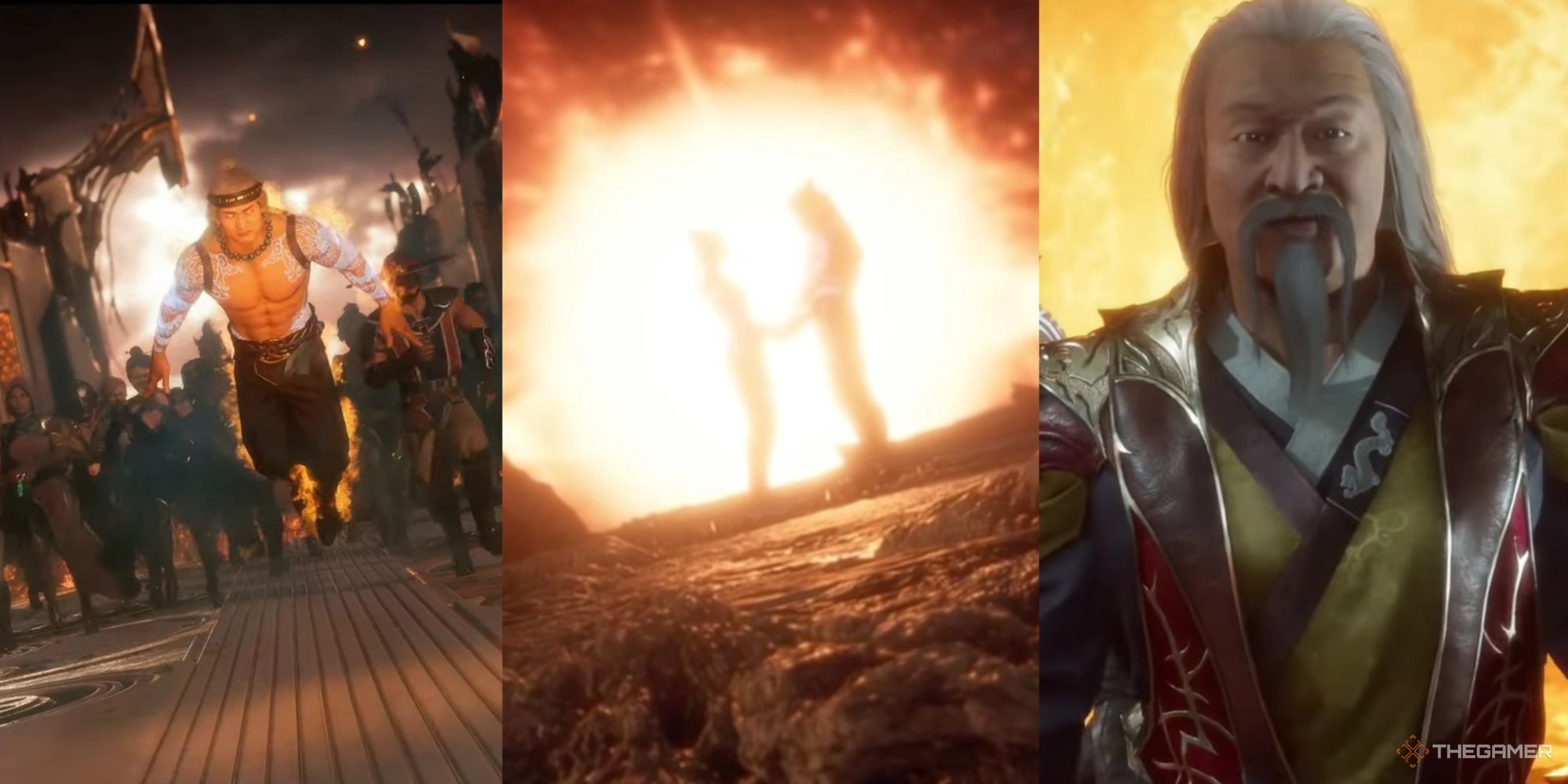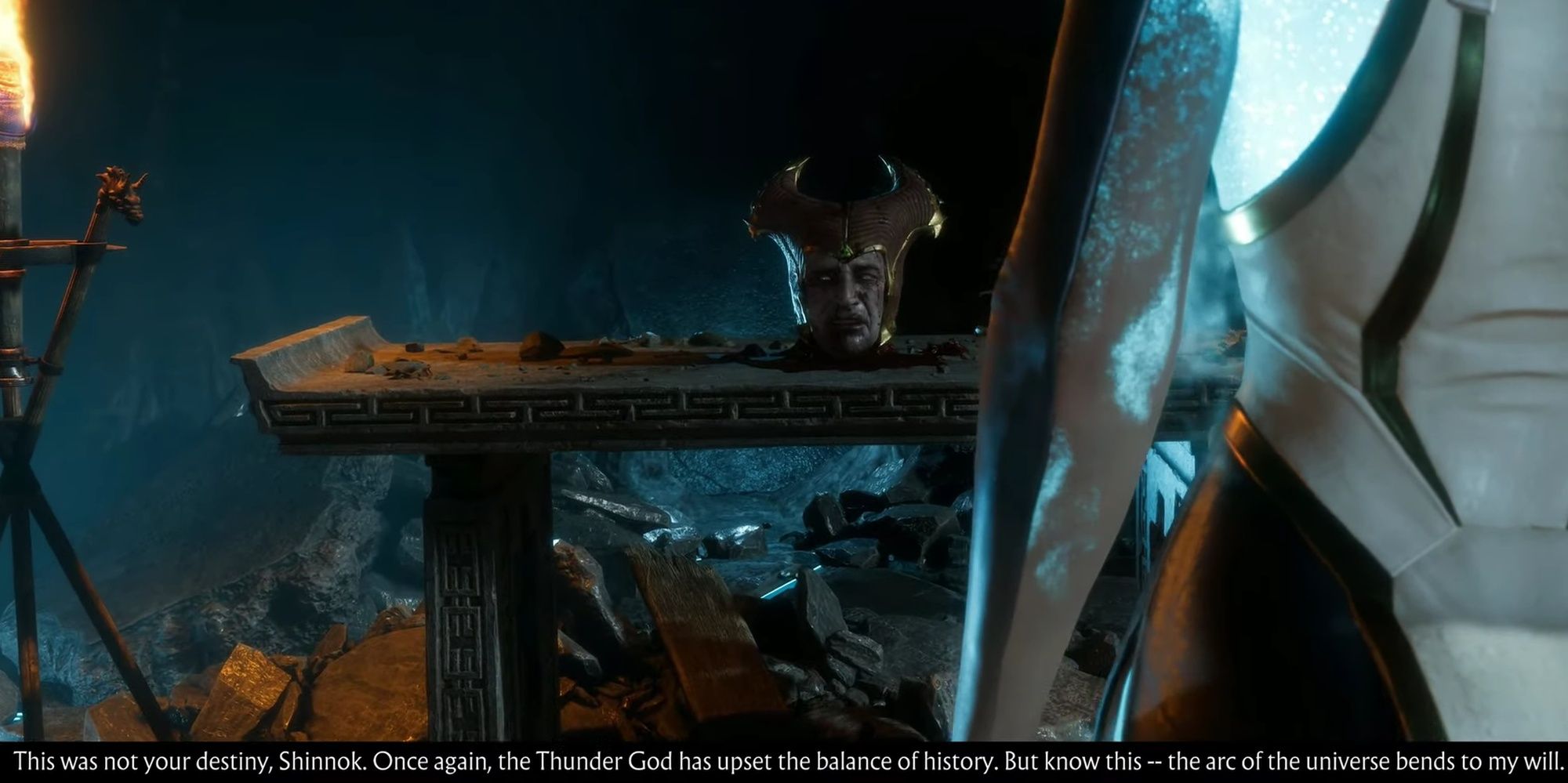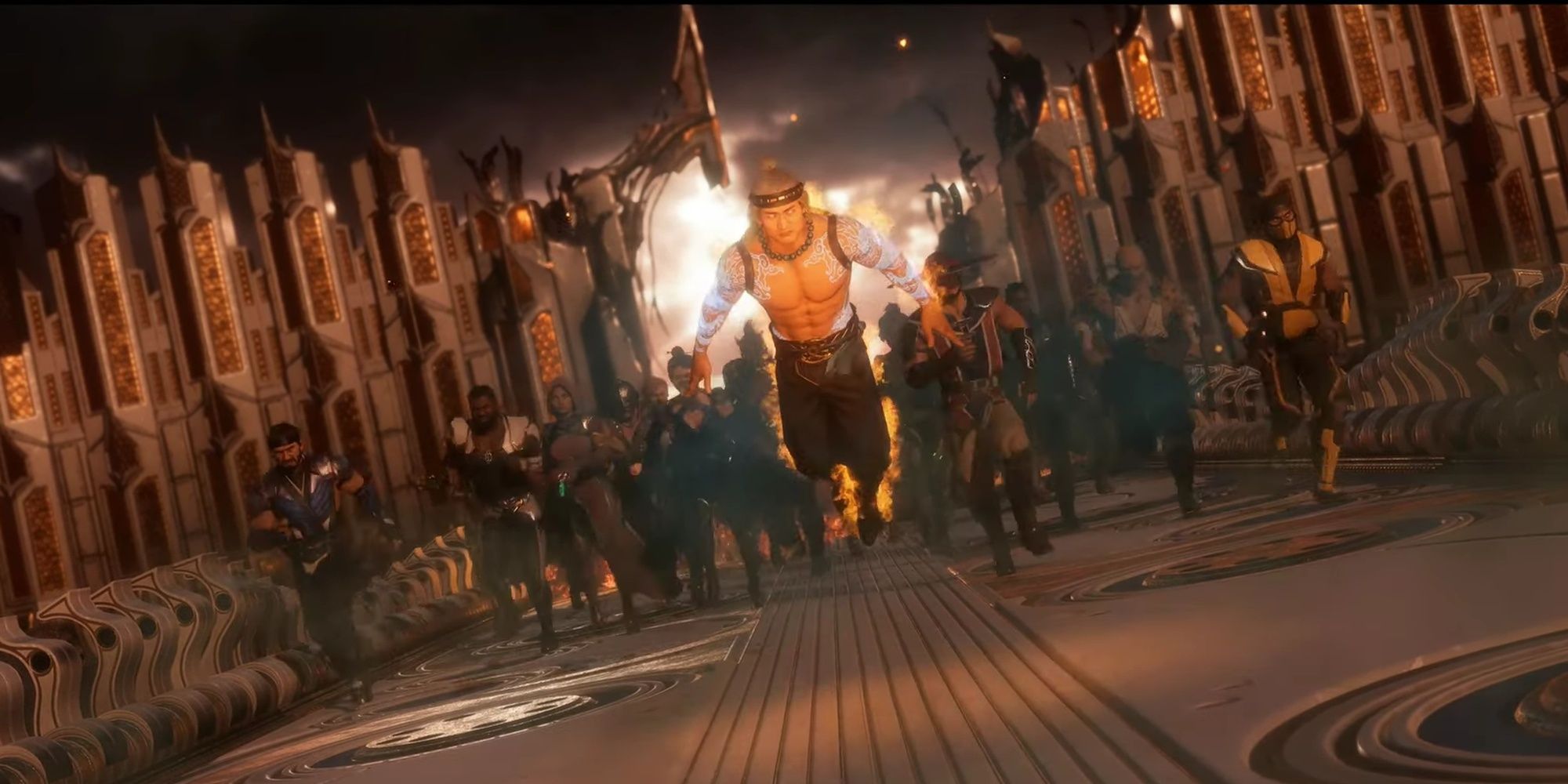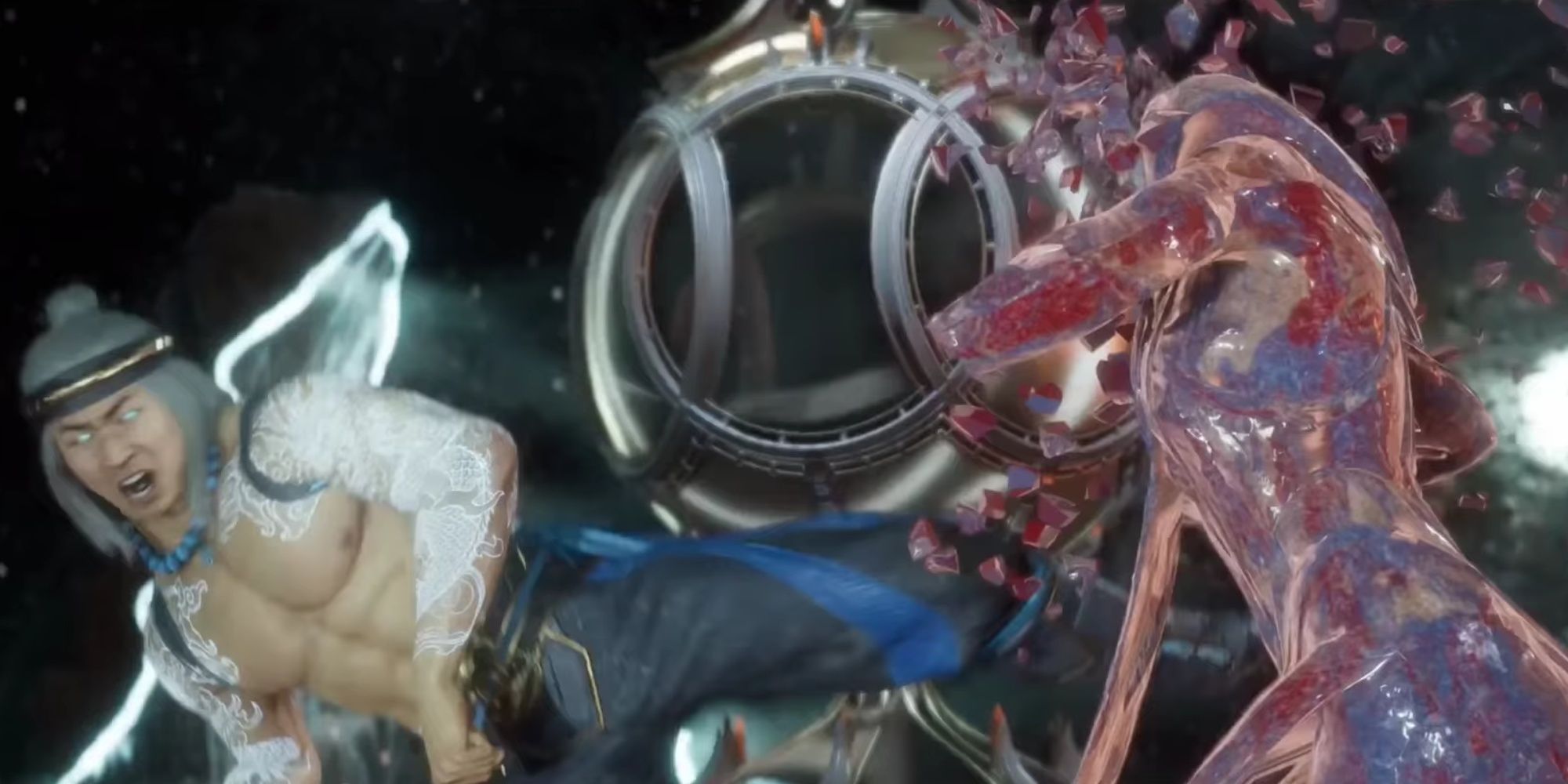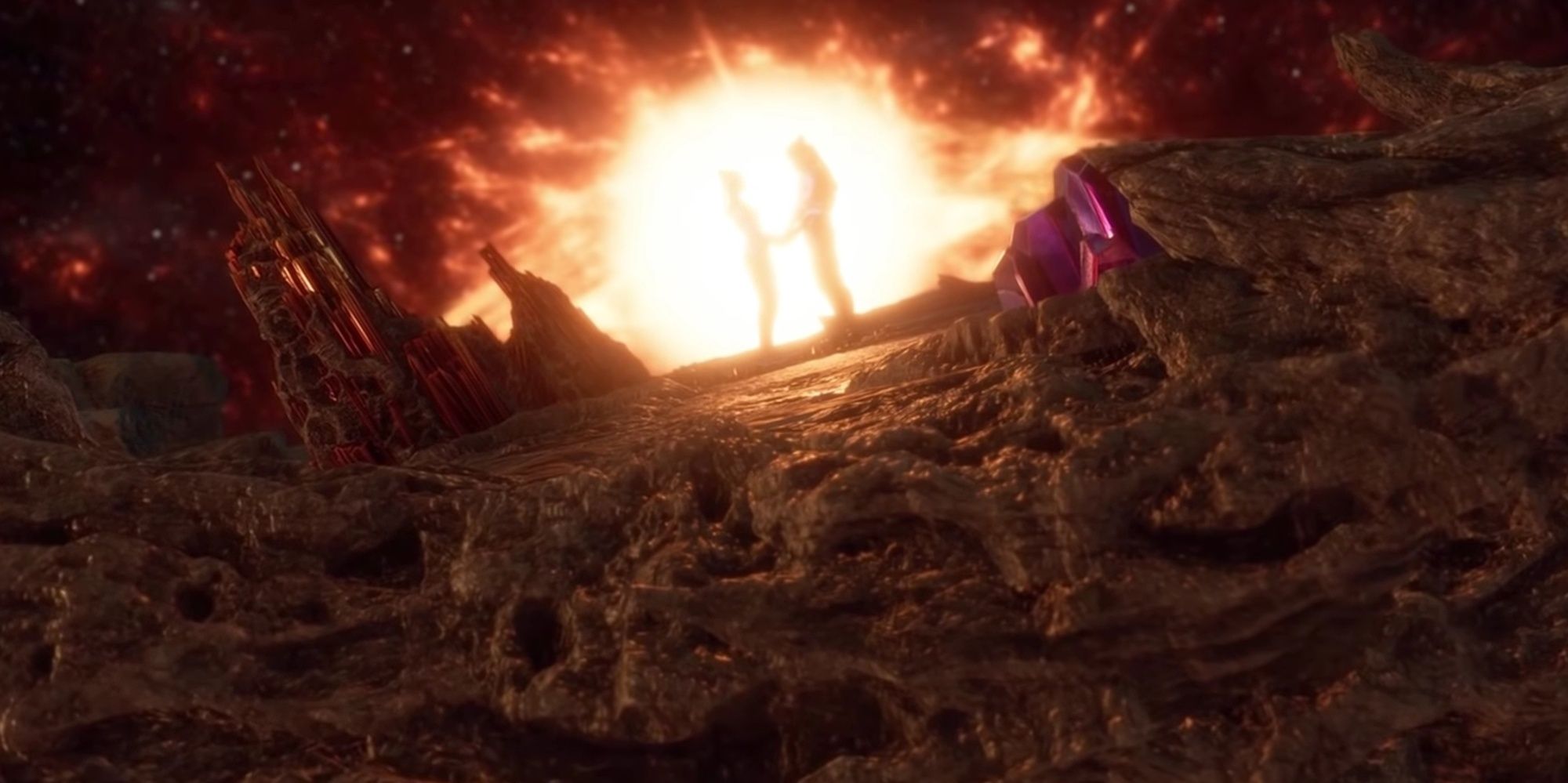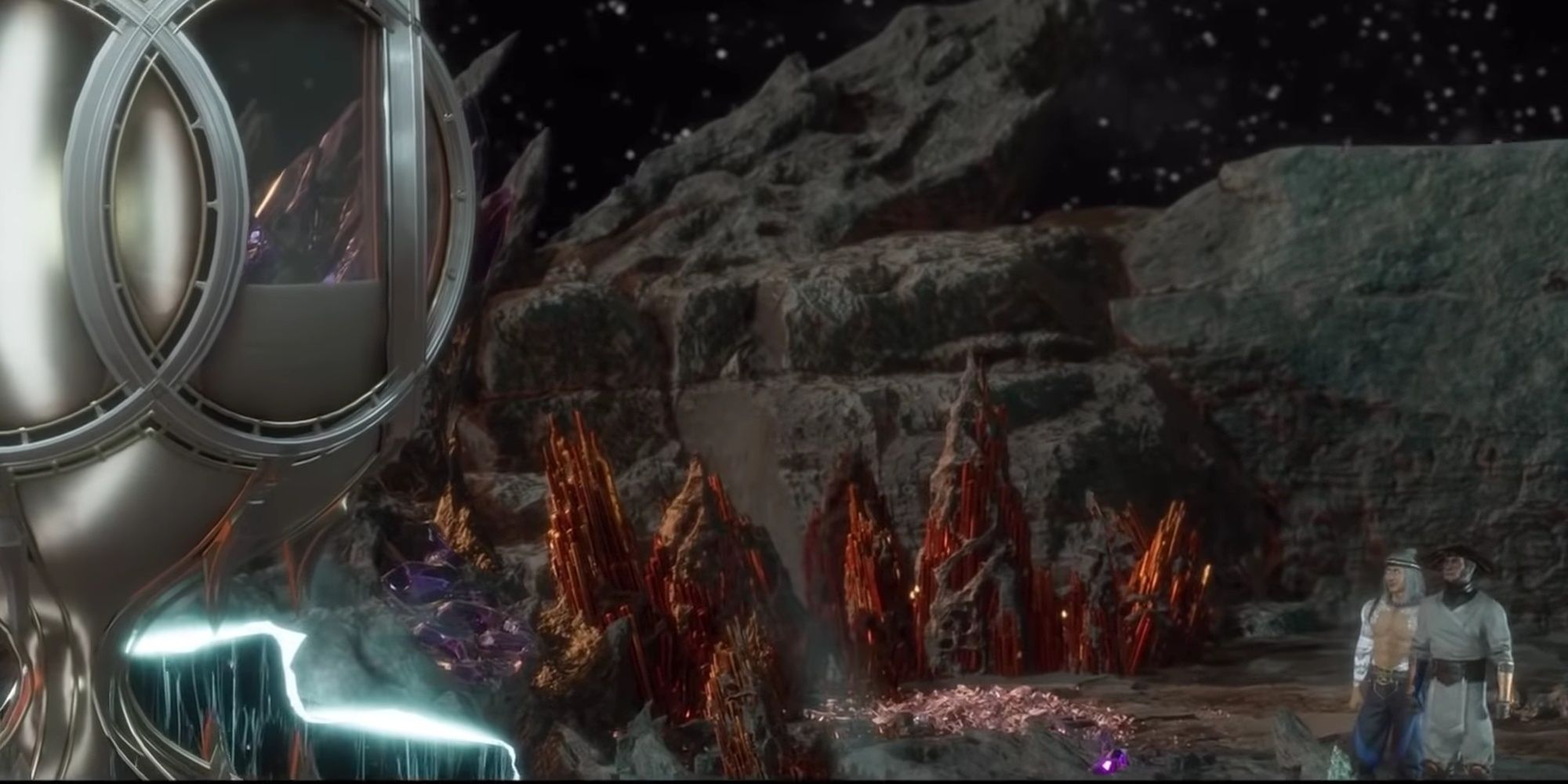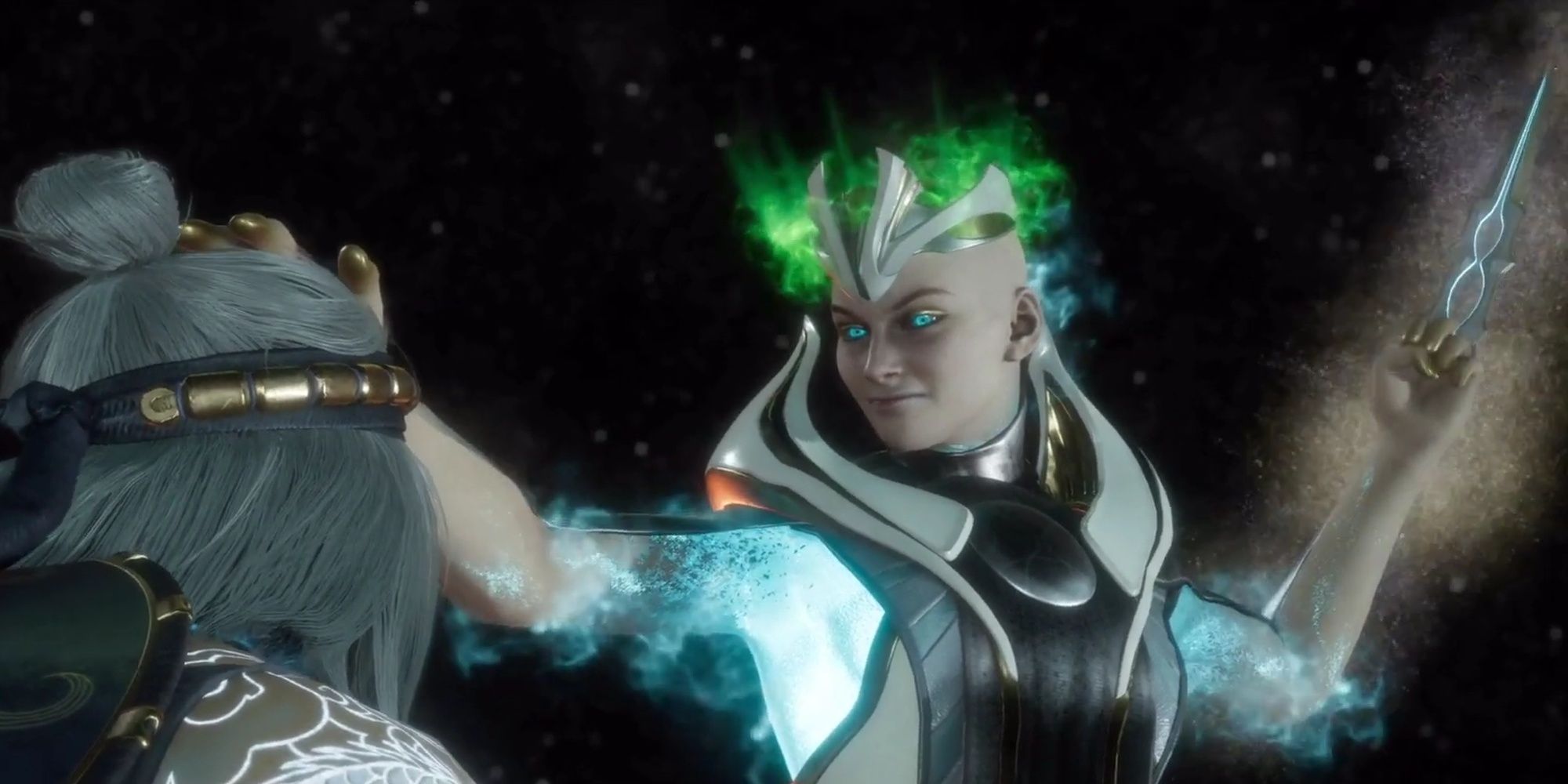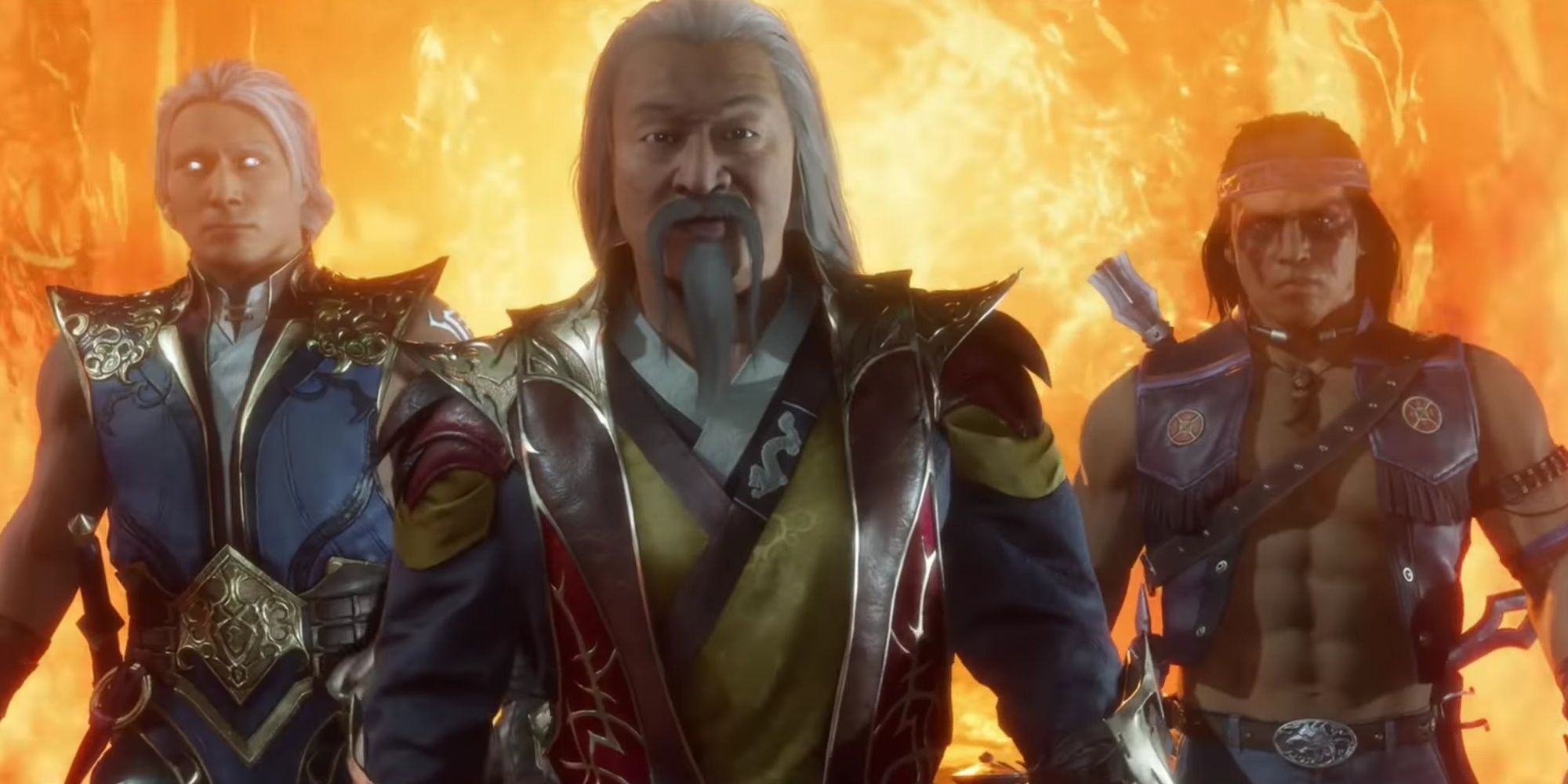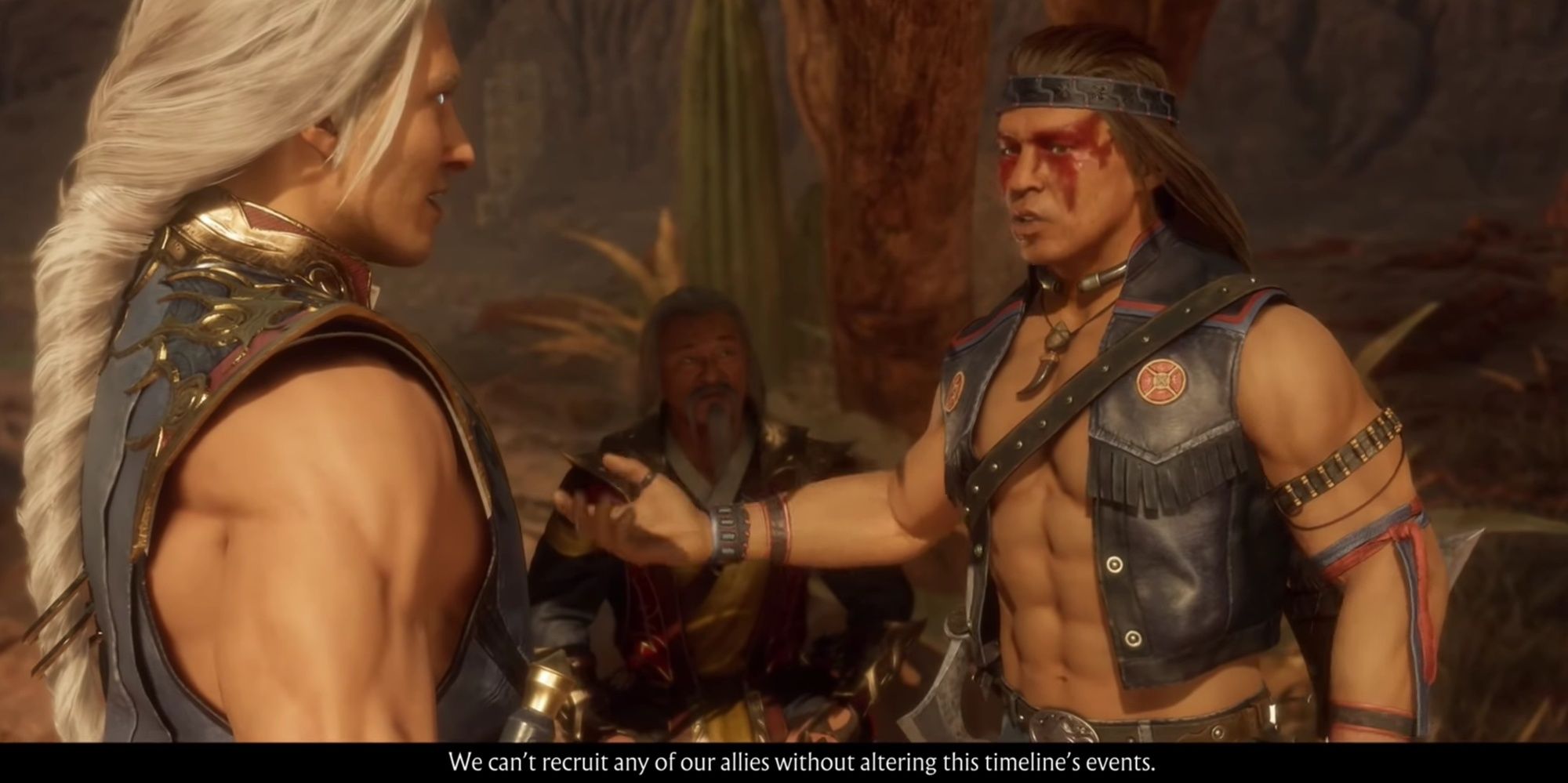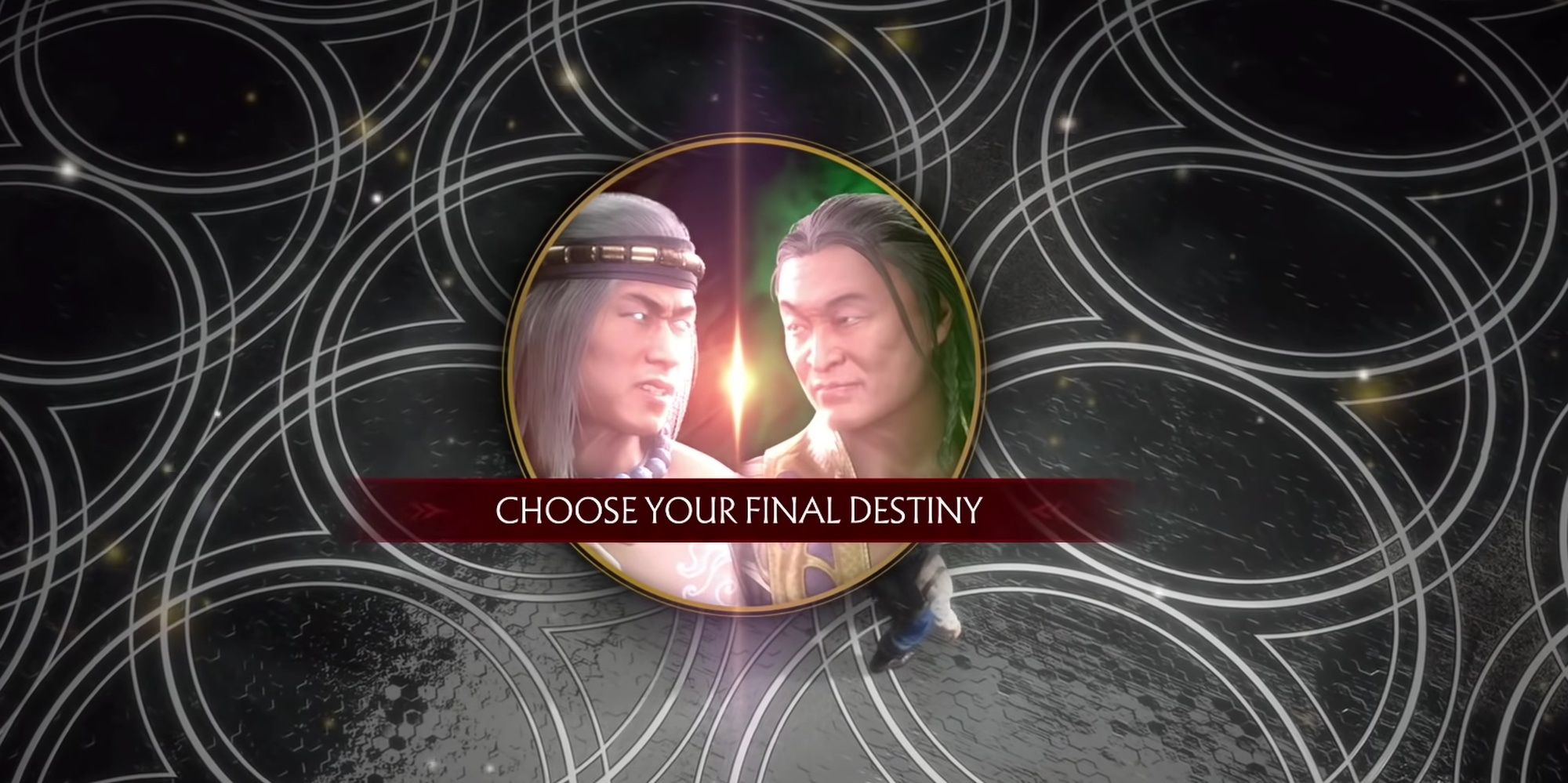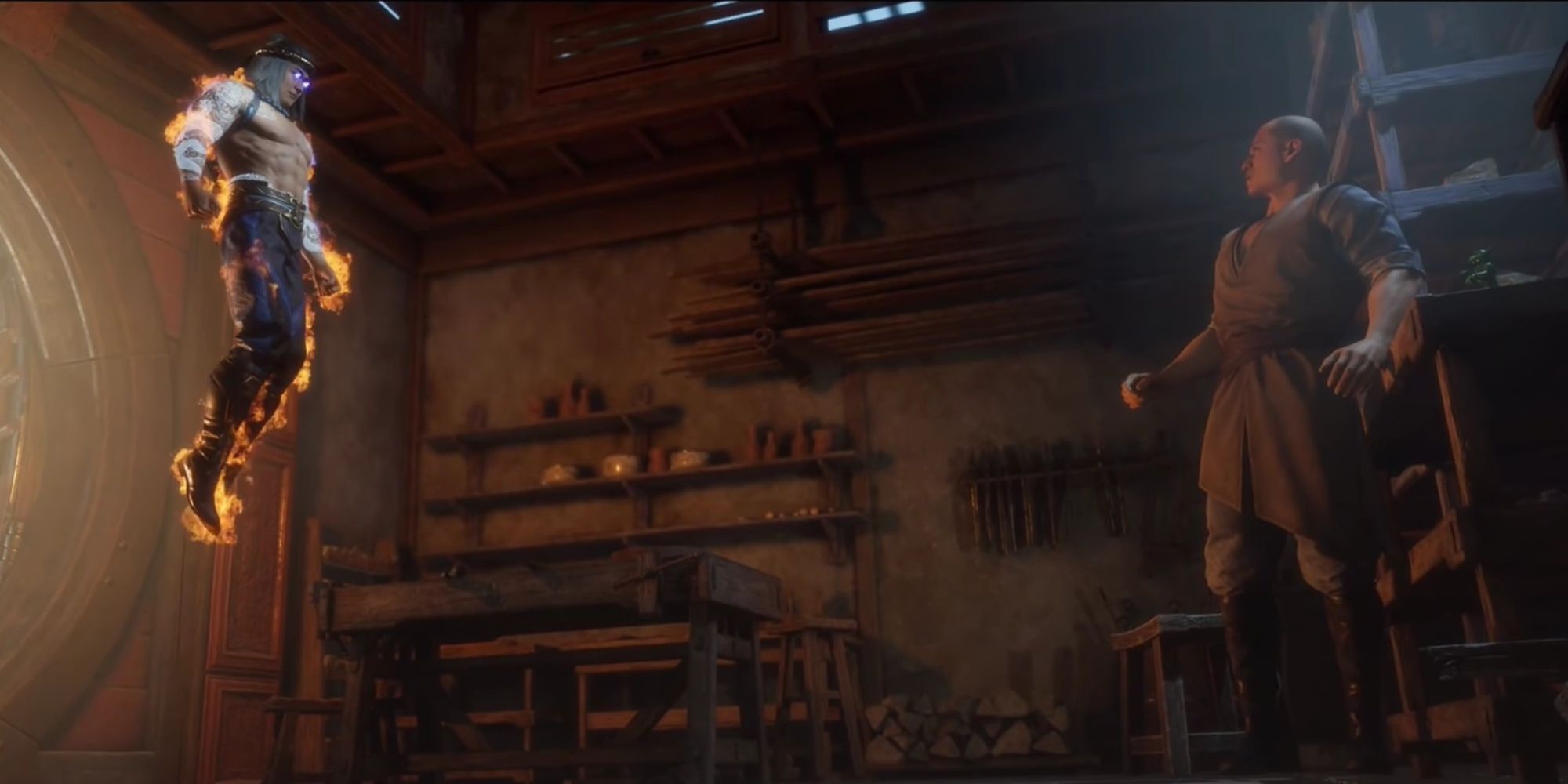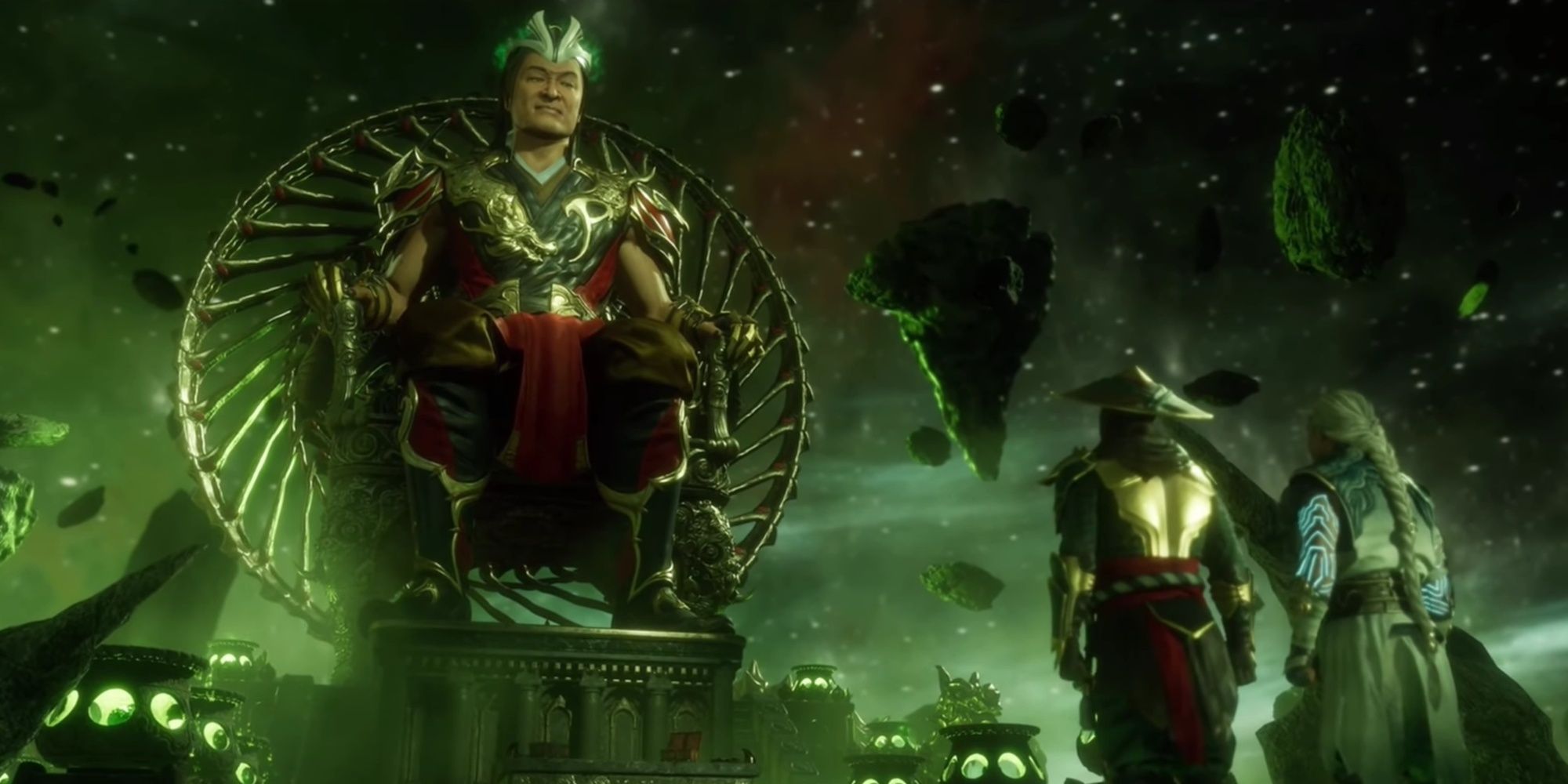The Mortal Kombat series has always had a unique approach to storytelling. From time travel retcons, magic amulet mulligans, and returns to the canon through resurrection, it can be tough at times to pin down a coherent story, especially the further back you go.
In an attempt to bring all those tangled threads into a singular strain, the series has decided to once again hit the big reset button by rewriting the entire timeline through the events that transpire in Mortal Kombat 11. It's tied up in a neat little bow through the base game and the Aftermath DLC as it leads neatly into the next game. Here are the endings of Mortal Kombat 11 explained.
How Many Endings Are There?
It wouldn't be a Mortal Kombat game unless there was hidden stuff to find, and in MK11's case, it's multiple endings instead of just a big boss fight or sequel bait.
These finales are unlocked based on how you perform in a final fight, and if you weren't aware, it can leave you with different thoughts on the ending and where the next game could go as they feature two separate support characters, with only one of them being featured in the DLC follow-up.
There are technically five endings in total. There are three in the base game and two in the DLC, with the first three referred to by the Mortal Kombat Community as the best, good, and bad endings. They're unlocked during the final fight with Kronika, which one you get depends on how the fight goes.
The Bad ending involves losing two matches in a row. The Good requires losing the first fight but winning the rest, and for the Best ending, you need to beat each round without a loss.
Warning: Spoilers for the plot and endings of Mortal Kombat 11 and the Aftermath DLC are below.
Base Game Ending, Explained
First off, it's worth briefly going over how where the plot goes in MK11 as in typical Mortal Kombat fashion, it goes in some pretty bizarre directions. We're introduced to Kronika, the Keeper of Time, and her cronies.
Her goal is to remove Raiden from the timeline as a way to restore balance after he continually messes things up by trying to rewrite the timeline himself in previous games. However, doing so would cause endless chaos and war between the realms.
The usual cast of heroes from MK10 is called up and sent out against her, whilst Kronika pulls in characters, including younger versions of the cast, out of their timelines to help her.
In the finale, after getting their butts continually handed to them, Raiden combines his soul with Liu Kang to turn him into a god, essentially putting his power level on the same tier as Kronikas and giving him more of a fighting chance.
It's from there the last showdown commences between the two deities as time begins to rewind, though Liu is rendered immune because of his joining with Raiden. The two fight after Liu deals with Kronikas Revenant bodyguards of Jade, Kitana, Kung Lao, and finally, her daughter Cetrion, who also sacrifices herself to give Kronika a power boost. Then one of three endings kicks in after the last bout as the pair fight throughout different eras of time.
Best Ending
In what's considered the 'Best Ending,' Liu Kang mops the floor with Kronika after getting his god powers. Raiden is now a mortal, and Kang decides to rewrite the entire timeline of the universe with the help of Kitana after Liu recovers her from another timeline.
The reason is that Raiden says the destinies of the two were always intertwined and that Liu needs someone to share the eons with.
Raiden tells Liu he looks forward to seeing him in the next timeline as the scene shifts to the last stage of the fight with Liu Kang standing alone for a moment before Kitana enters the scene from off camera suddenly.
Kitana tells Liu that evil is never truly gone and that it will still crop up in this new timeline. But our new fire god Liu Kang says that each realm must choose its own destiny, and the two will face it together. The two hold hands and share a loving look as they gaze into the formless space that’s ripe and ready for a new timeline.
Good Ending
The "Good Ending" is similar to the above one in that Liu Kang still gets god powers, beats Kronika, and after Raiden tells him he has proven himself worthy of becoming the new Protector of Earthrealm, he decides to reset the entire timeline.
However, this time around, he takes the mortal Raiden with him instead of Kitana. Raiden tells Liu Kang that he will advise him for as long as his mortality allows, implying that he’ll one day die of old age. It's not a massive change, and it's nearly identical to the 'Best Ending,' but it's arguably the canon-ending as it leads into Aftermath and then Mk1.
Bad Ending
The 'Bad Ending' is non-canon, so don't worry too much about trying to unlock this one. In this ending, Kronika wins the battle and kills Liu Kang by decapitation.
However, the game doesn’t end there, as it does let you retry the entire fight immediately afterward. So it's a handy way to reset things if you didn't manage to win the first fight and want to try unlocking the 'Best Ending' again. It’s also a fun fake-out that can catch you off guard if you think that it’s the real ending.
Aftermath Endings Explained
Once the ending of the main game has wrapped up, the story in Aftermath kicks into high gear as just before Liu Kang can start tinkering with time, Shang Tsung, Night Wolf, and Fujin emerge from Kronikas Hourglass. According to Shang, they were locked away in a realm outside time within the Hourglass known as "The Void" for refusing to join her on her crusade to rewrite history.
Shang Tsun warns that the Hourglass cant be used to change history anymore because when Liu Kang defeated Kronika, he also unwittingly destroyed her fancy hat, which was the key to it all. Known as the Crown of Souls, this elaborate headpiece allows the wearer to control the Hourglass, and with it, the timeline of the universe.
So our heroes set out to retrieve a non-broken crown from the past before Kronika can get her hands on it. What follows is a time-hopping tour of familiar and fan-service style events from the previous games as old characters are retconned back into existence, issues like the Revenants are dealt with, and the entire timeline becomes a bit chaotic.
It all culminates in a final showdown between Liu Kang and Shang Tsung, where Shang has predictably betrayed everyone for ultimate power. Though Liu reveals he knew this was coming and was using Shang Tsung this entire time as he was the only one strong enough to defeat Kronika, especially since it was Shang that made the Crown of Souls in the first place.
The Aftermath DLC is free, but we'll provide a brief rundown of the endings for those that are still curious about how things play out or are looking for some primer notes for the start of MK1.
You can choose which ending you’ll get as MK11 gives you a choice to fight as Liu Kang or Shang Tsung in the final bout.
Liu Kang's Ending
If Liu wins the fight, Shang Tsung gets brutally erased from history as he crumbles into dust. Power over the Hourglass goes to Liu, who uses it to create an entirely new era under his watch. As the cutscene closes out, Liu Kang visits the ancestor of Kung Lao, the Great Kung Lao, to begin training him to become his new champion for the upcoming Mortal Kombat tournament.
Liu Kang's ending should be considered the canon finale, as it leads directly into the next game with some sequel baiting. Plus, Fire God Liu Kang turns up in MK1, and the entire timeline looks to have been successfully rewritten by him. It's still close to the original, but with a few significant changes here and there to the origins of iconic characters.
Shang Tsung's Ending
If Shang Tsung wins, Liu Kang is defeated in combat, and Shang absorbs his soul. Since Liu contained Raiden and was a god, his deific powers are transferred to Kang and essentially superchargers him, leaving Liu's body as a mummified skeleton on the ground.
With his new terrifying godhood achieved, Shang then uses the Hourglass to rewrite the entire timeline as he pleases. He then conquers all the realms and establishes himself as the ruler of all, with a corrupted Raiden and Fujin serving him. As the game ends, Kang, now a giant, sits on an equally large throne before them in a very Thanos-esque scene.
There are also special unlockable character endings in The Tower of Time. However, these are non-canon and are essentially fun endings for the arcade mode.

